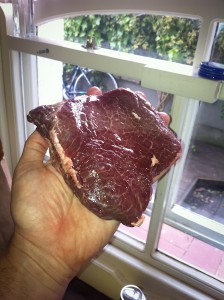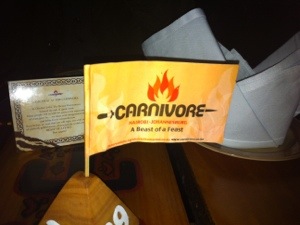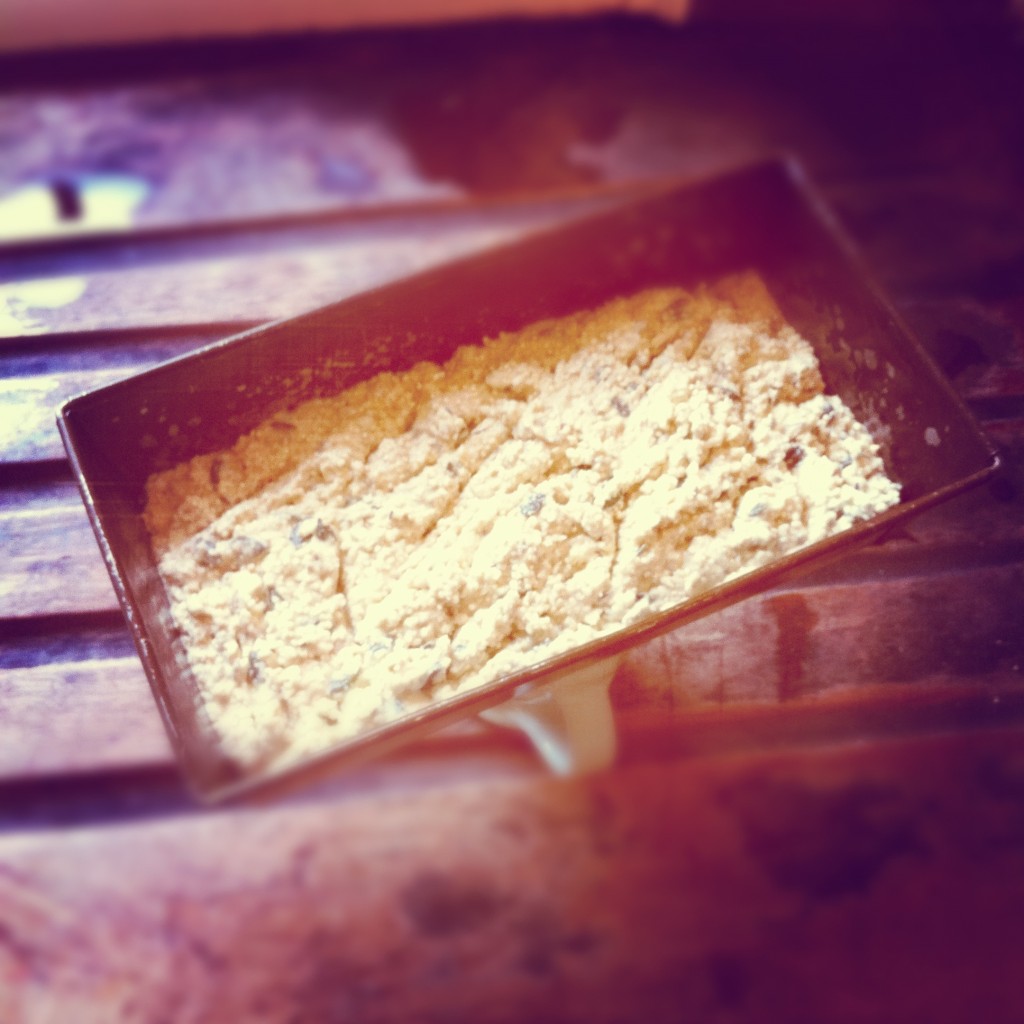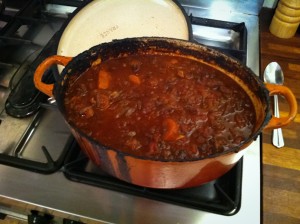Just staggered out of a restaurant called Carnivore here in Nairobi, Kenya. Stuffed, ate seven kinds of grilled animals: crocodile, pork, ostrich, lamb, beef, chicken & turkey. Will be digesting for a week.
3 degrees of retouch
There’s a lot of debate on the subject of retouching, there are some photographers who don’t (or won’t or can’t) retouch at all, some who do a bit and then there are some who do loads.
I think I’m somewhere in the middle.
Continue reading “3 degrees of retouch”
Millet & Brown
Experiment No. 1
1 cup millet flakes
1 cup barley flakes
1 cup quinoa
2 cups brown rice flour
1/2 cup sunflower and pumpkin
1/2 tsp salt
1 tsp caraway
2 level tsp baking powder
2 level tsp bicarbonate of soda
1/2 cup oil
3/2 cups water
1 tsp honey
Oven at 180C
cook for 45 mins.
DON’T DO IT, IT’S ABSOLUTELY DISGUSTING!
food: Millet & Brown
Experiment No. 1
1 cup millet flakes
1 cup barley flakes
1 cup quinoa
2 cups brown rice flour
1/2 cup sunflower and pumpkin
1/2 tsp salt
1 tsp caraway
2 level tsp baking powder
2 level tsp bicarbonate of soda
1/2 cup oil
3/2 cups water
1 tsp honey
Oven at 180C
cook for 45 mins.
DON’T DO IT, IT’S ABSOLUTELY DISGUSTING!
tech: UPC fibre
Just had this installed today and am pretty happy so far, with the exception of a little downtime, not sure why but reset the modem and that seemed to do the trick. More than anything I like the upload speed, being a very frequent uploader for work, this stuff just flies up there …

I hope you enjoy
food: carnage in the kitchen (or a Trio of Ox Cheeks)
Ever keen on experimentation in the kitchen, my curiosity was piqued a while ago when I came across a recipe by the ebullient Conrad which involved a vertical stacking of ox cheeks, mash and a whole bunch of other stuff. Of course it’d have to be vertical if it’s Conrad, an old-fashioned horizontal dish just wouldn’t do. To follow through with the recipe and make it, I visited Getmandolineslicers and looked at their various posts regarding slicers, and after being convinced I got them. They have been just the thing my kitchen was missing. I also got some other products along with them like a set of new knives and a bunch of seasonings. Sushi is one delicacy that I enjoy cooking, for which I had to purchase a different set of knives. Basically, the recipe instructed you to cook the meat in a load of red wine and shallots. As my friend Philip points out, pretty much anything will taste good if you cook it long enough in wine and shallots, but hey!
So I was rummaging in the freezer the other day looking for my glasses or keys or something, when I came across a pack of these lovelies best food processor . Ox cheeks are really cheap – my mother’s remark when I announced I was feeding these morsels to some guests was ‘Ugh! We used to feed them to the dog’. Undeterred, and clinging to the last vestiges of French blood, now heavily diluted in my body, I persevered. I decided to make a casserole out of them. Here’s how it happened:
 OK I’m a large man and I’ve got large man-hands, here’s an ox cheek nestling in my palm. They’re big and they have a lot of connective tissue. Your jaw is a pretty strong thing , hence its muscles are well developed. I guess if you’re a cow, you spend a lot of time chewing the cud, thus …
OK I’m a large man and I’ve got large man-hands, here’s an ox cheek nestling in my palm. They’re big and they have a lot of connective tissue. Your jaw is a pretty strong thing , hence its muscles are well developed. I guess if you’re a cow, you spend a lot of time chewing the cud, thus …
Because of this connective tissue, I decided on a long slow cook, very long, very slow. I’m the proud user of an ancient Aga, and Agas are made for this. And becuase the internet isn’t exactly brimming with ox cheek recipes, I decided to invent one.
Here, folks is my Trio of Ox Cheeks:
Ingredients:
3 Ox cheeks, trimmed
3 large carrots
3 tins of tomatoes
3 large onions
3 tbsp vegetable oil
3 triplets of garlic (about 9 cloves)
333ml cider
3 pinches of salt
3 sprigs of thyme, denuded
3 ginds of black pepper
3 tsp cumin seed
3 level tsp chilli powder
feeds 3 pairs of people.
Method:
I could dwell on exactness and propriety here, but I couldn’t be arsed – the cooking time is so long for this that it really doesn’t matter a damn what way you slice your onions, as it were. I’ll give a few pointers, the implementation is up to you.
Slice your onions (as I said, it doesn’t matter a damn how you do it but my personal preference is for a slightly diagonal cut as if you’re drawing a line from Belfast to Cork – who wouldn’t?) and stick ’em in a Le Creuset or something similar. Chuck in the oil and garlic and fry ’em up. Chop the carrots again in a non-sectarian way and add them to the onions and garlic. Stick on a lid and reduce the heat so that they become translucent but not burnt (although I doubt it matters if you do).
Meanwhile, and this is the hard bit, slice your ox cheeks into large bite-size pieces (again, a bit bigger than you might think because being a large man, I have a large man-bite). They’re tough because of the connective tissue, but persevere mes amis. Then burn the bejaysus out of them on a skillet, you really want to scorch the outside of these lovelies, a bit of charring never hurt anything that was dead. Once suitable charred, transfer into the Le Creuset on top of the onions, carefully maintaining the integrity of the layers (this is for Conrad). Gently pour your tomatoes, herbs, seasonings and cider on top. It might begin to look something like this:
 Turn up the heat under the casserole until it begins to simmer and when you’re happy that Conrad or his agents aren’t looking, stir to homogenise. I must admit it looks a bit rough and ready, this wouldn’t be classed as a pretty dish.
Turn up the heat under the casserole until it begins to simmer and when you’re happy that Conrad or his agents aren’t looking, stir to homogenise. I must admit it looks a bit rough and ready, this wouldn’t be classed as a pretty dish.
Once it simmers, it’s time to stick it in the oven, for a long time. Lid on.
 As you can see, my Aga is celebrating its ancientness by being a bit scruffy, but as my mother says, what doesn’t kill you makes you stronger. In the cheeks go, close the door and wait …
As you can see, my Aga is celebrating its ancientness by being a bit scruffy, but as my mother says, what doesn’t kill you makes you stronger. In the cheeks go, close the door and wait …
So I put this in on Tuesday evening at about 7pm and revisited it to give it a bit of a stir at around midnight. I came to the conclusion that I should move it downstairs in the Aga, to a slower oven, probably around 90C or thereabouts, and there it remained, untouched by human hand until Wednesday evening at 7pm, so it got pretty much a full 24 hours.
It came out smelling of roses (metaphorically) and sweet cheeks. The cooking was so long and slow that all that gnarly connective tissue is, as if by magic, gone. Rendered into the body of the stew. It has good robust flavour, and although not winning any prizes in the beauty contest, it is, as Fergus Henderson would say, settling.
Give yourself a whole 24 hours for this puppy. And Enjoy.
carnage in the kitchen (or a Trio of Ox Cheeks)
Ever keen on experimentation in the kitchen, my curiosity was piqued a while ago when I came across a recipe by the ebullient Conrad which involved a vertical stacking of ox cheeks, mash and a whole bunch of other stuff. Of course it’d have to be vertical if it’s Conrad, an old-fashioned horizontal dish just wouldn’t do. Basically, the recipe instructed you to cook the meat in a load of red wine and shallots. As my friend Philip points out, pretty much anything will taste good if you cook it long enough in wine and shallots, but hey!
So I was rummaging in the freezer the other day looking for my glasses or keys or something, when I came across a pack of these lovelies. Ox cheeks are really cheap – my mother’s remark when I announced I was feeding these morsels to some guests was ‘Ugh! We used to feed them to the dog’. Undeterred, and clinging to the last vestiges of French blood, now heavily diluted in my body, I persevered. I decided to make a casserole out of them. Here’s how it happened:
 OK I’m a large man and I’ve got large man-hands, here’s an ox cheek nestling in my palm. They’re big and they have a lot of connective tissue. Your jaw is a pretty strong thing , hence its muscles are well developed. I guess if you’re a cow, you spend a lot of time chewing the cud, thus …
OK I’m a large man and I’ve got large man-hands, here’s an ox cheek nestling in my palm. They’re big and they have a lot of connective tissue. Your jaw is a pretty strong thing , hence its muscles are well developed. I guess if you’re a cow, you spend a lot of time chewing the cud, thus …
Because of this connective tissue, I decided on a long slow cook, very long, very slow. I’m the proud user of an ancient Aga, and Agas are made for this. And becuase the internet isn’t exactly brimming with ox cheek recipes, I decided to invent one.
Here, folks is my Trio of Ox Cheeks:
Ingredients:
3 Ox cheeks, trimmed
3 large carrots
3 tins of tomatoes
3 large onions
3 tbsp vegetable oil
3 triplets of garlic (about 9 cloves)
333ml cider
3 pinches of salt
3 sprigs of thyme, denuded
3 ginds of black pepper
3 tsp cumin seed
3 level tsp chilli powder
feeds 3 pairs of people.
Method:
I could dwell on exactness and propriety here, but I couldn’t be arsed – the cooking time is so long for this that it really doesn’t matter a damn what way you slice your onions, as it were. I’ll give a few pointers, the implementation is up to you.
Slice your onions (as I said, it doesn’t matter a damn how you do it but my personal preference is for a slightly diagonal cut as if you’re drawing a line from Belfast to Cork – who wouldn’t?) and stick ’em in a Le Creuset or something similar. Chuck in the oil and garlic and fry ’em up. Chop the carrots again in a non-sectarian way and add them to the onions and garlic. Stick on a lid and reduce the heat so that they become translucent but not burnt (although I doubt it matters if you do).
Meanwhile, and this is the hard bit, slice your ox cheeks into large bite-size pieces (again, a bit bigger than you might think because being a large man, I have a large man-bite). They’re tough because of the connective tissue, but persevere mes amis. Then burn the bejaysus out of them on a skillet, you really want to scorch the outside of these lovelies, a bit of charring never hurt anything that was dead. Once suitable charred, transfer into the Le Creuset on top of the onions, carefully maintaining the integrity of the layers (this is for Conrad). Gently pour your tomatoes, herbs, seasonings and cider on top. It might begin to look something like this:
 Turn up the heat under the casserole until it begins to simmer and when you’re happy that Conrad or his agents aren’t looking, stir to homogenise. I must admit it looks a bit rough and ready, this wouldn’t be classed as a pretty dish.
Turn up the heat under the casserole until it begins to simmer and when you’re happy that Conrad or his agents aren’t looking, stir to homogenise. I must admit it looks a bit rough and ready, this wouldn’t be classed as a pretty dish.
Once it simmers, it’s time to stick it in the oven, for a long time. Lid on.
 As you can see, my Aga is celebrating its ancientness by being a bit scruffy, but as my mother says, what doesn’t kill you makes you stronger. In the cheeks go, close the door and wait …
As you can see, my Aga is celebrating its ancientness by being a bit scruffy, but as my mother says, what doesn’t kill you makes you stronger. In the cheeks go, close the door and wait …
So I put this in on Tuesday evening at about 7pm and revisited it to give it a bit of a stir at around midnight. I came to the conclusion that I should move it downstairs in the Aga, to a slower oven, probably around 90C or thereabouts, and there it remained, untouched by human hand until Wednesday evening at 7pm, so it got pretty much a full 24 hours.
It came out smelling of roses (metaphorically) and sweet cheeks. The cooking was so long and slow that all that gnarly connective tissue is, as if by magic, gone. Rendered into the body of the stew. It has good robust flavour, and although not winning any prizes in the beauty contest, it is, as Fergus Henderson would say, settling. And luckily I have a kitchen faucet with pull down sprayer to make clean up that much easier!
Give yourself a whole 24 hours for this puppy. And Enjoy.
food: ceviche
I was watching the brilliant Anthony Bourdain on tv a couple of weeks ago when he was traveling in Panama eating the local delicacies, one of which is Ceviche – fish cooked in citrus. The great thing about Panama is that you have access to Pacific fish on one coast and Atlantic species on the other, so you have a huge variety of fresh ingredients to play with.
I had eaten ceviche years ago in Odessa (I think) probably with, or due to Eleanor Walsh, a fabulous cook who used to have an involvement there. I remember being a little apprehensive about eating it, but when I tasted it it was amazing. I was having a few foodie friends over for supper the other day so I decided on ceviche for a starter.
Having researched it on the web, it seems that of paramount importance is the freshness of the fish you use. I nipped up to the local fish shop and asked the fishmonger what was fresh, and ended up walking away with a mix of fresh whiting fillets, a bit of red snapper and little organic salmon.
Ingredients:
about 1kg of freshest possible fish (whiting, red snapper, salmon)
5 limes and 2 lemons juiced
1 clove of garlic shaved
1 small red onion, very finely sliced
1 tomato, diced
1 very hot red chili, very finely sliced
1 yellow pepper, diced
hefty pinch of salt
a big bunch of coriander, very finely chopped, stalks included
1 avocado, sliced
1/4 mango, diced
Method:
Rinse the fish under cold running water & shake dry. Slice finely into 3 x 1 x 1 cm strips and place in a glass (non-reactive) bowl. Add everything except the avocado and mango. Cover and put in the fridge for 3 or 4 hours. Every hour or so, take it out and stir the mix around so that anything which isn’t submerged in the juice get its day in the liquor.
Shortly before eating, add in sliced avocado and mango. These are needed to balance the acid in the juices. Add in the rest of the coriander and mix well.
You can drain off some of the cooking liquor and serve it in shot glasses to your guests as an aperitif. It’s also reputed to be the best hangover cure in the world.
ceviche
I was watching the brilliant Anthony Bourdain on tv a couple of weeks ago when he was traveling in Panama eating the local delicacies, one of which is Ceviche – fish cooked in citrus. The great thing about Panama is that you have access to Pacific fish on one coast and Atlantic species on the other, so you have a huge variety of fresh ingredients to play with.
I had eaten ceviche years ago in Odessa (I think) probably with, or due to Eleanor Walsh, a fabulous cook who used to have an involvement there. I remember being a little apprehensive about eating it, but when I tasted it it was amazing. I was having a few foodie friends over for supper the other day so I decided on ceviche for a starter.
Having researched it on the web, it seems that of paramount importance is the freshness of the fish you use. I nipped up to the local fish shop and asked the fishmonger what was fresh, and ended up walking away with a mix of fresh whiting fillets, a bit of red snapper and little organic salmon.
Ingredients:
about 1kg of freshest possible fish (whiting, red snapper, salmon)
5 limes and 2 lemons juiced
1 clove of garlic shaved
1 small red onion, very finely sliced
1 tomato, diced
1 very hot red chili, very finely sliced
1 yellow pepper, diced
hefty pinch of salt
a big bunch of coriander, very finely chopped, stalks included
1 avocado, sliced
1/4 mango, diced
Method:
Rinse the fish under cold running water & shake dry. Slice finely into 3 x 1 x 1 cm strips and place in a glass (non-reactive) bowl. Add everything except the avocado and mango. Cover and put in the fridge for 3 or 4 hours. Every hour or so, take it out and stir the mix around so that anything which isn’t submerged in the juice get its day in the liquor.
Shortly before eating, add in sliced avocado and mango. These are needed to balance the acid in the juices. Add in the rest of the coriander and mix well.
You can drain off some of the cooking liquor and serve it in shot glasses to your guests as an aperitif. It’s also reputed to be the best hangover cure in the world.



